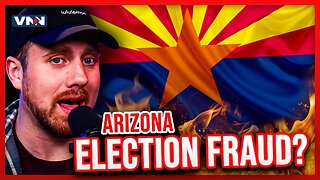Premium Only Content

Ozempic: Would You Put It in Your Body if You Knew it Was Made From Gila Monster Venom?
Ozempic is a drug that was inspired by the venom of the Gila monster, a poisonous lizard native to the American Southwest.
Here's some information about Ozempic and Gila monster venom:
Ozempic's mechanism of action
Ozempic mimics a hormone that tells the brain that you're full, and slows digestion.
Gila monster venom's components
Gila monster venom contains peptides like exendin-3 and exendin-4, which stimulate insulin secretion and slow gastric emptying.
Discovery of exendin-4
In the 1980s, scientists isolated exendin-4 from Gila monster venom and found that it was similar to a human hormone called GLP-1. GLP-1 is released after eating and helps control blood sugar levels.
Development of Ozempic and Wegovy
Research into exendin-4 led to the development of semaglutide, a derivative of the molecule that stays in the body longer. Ozempic and Wegovy both contain semaglutide.
Ozempic's original purpose
Ozempic was originally developed to treat type 2 diabetes, which occurs when the body can't use insulin effectively.
Side effects of Ozempic
Common side effects of Ozempic include nausea, diarrhea, abdominal pain, vomiting, and constipation
If you would seriously consider using this instead of natural alternatives, your elevator doesn't go to the top floor and you deserve what you get.
The question is, will Ozempic really solve your diabetes & weight loss problem without giving you a different problem? How about an alternative? Thousands of natural chemicals in plants have therapeutic health benefits with rarely any side effects.
The best natural remedies for diabetes and weight loss:
1. Panax ginseng
2. Berberine
Both of these remedies cost a fraction of what a monthly supply of Ozempic or Wegovy would cost you, without the horrible side effects, but Big Pharma really doesn't want you to know about it.
FAIR USE NOTICE: Videos and images on this channel may contain copyrighted material. Such material is made available for educational purposes only. This constitutes a 'fair use' of any such copyrighted material as provided for in Title 17 U.S.C. section 106A-117 of the U.S. Copyright Law.
-
 4:00
4:00
Rogue Nation Eternal Militia
5 days agoFinally, unburdened by what has been! Flush twice, it's a long way to California.
6331 -
 17:17
17:17
DeVory Darkins
19 hours agoKamala Post-Election BOMBSHELL Exposes $1 BILLION Campaign DISASTER
31.7K132 -
 19:52
19:52
Stephen Gardner
1 day ago🔥HOLY CRAP! Trump just did the UNTHINKABLE!!
44.7K442 -
 4:34:55
4:34:55
Pepkilla
7 hours agoBlackops Terminus Zombies Boat Glitch
115K6 -
 5:50
5:50
CapEx
19 hours ago $22.92 earnedWhat the Coming & Inevitable Sovereign Debt Crisis Means for YOU | CapEx Insider
108K25 -
 1:34:00
1:34:00
Tactical Advisor
8 hours agoAR15 Giveaway WINNER/Trump Winning | Vault Room Live Stream 008
73.2K27 -
 5:41:10
5:41:10
Vigilant News Network
10 hours agoOfficials CAUGHT Changing Ballots in Arizona | The Daily Dose
122K70 -
 17:30
17:30
Forrest Galante
1 day ago5 Most Dangerous Invasive Species in the World
91.2K53 -
 38:53
38:53
Popcorn In Bed
1 day agoTOP GUN: MAVERICK | FIRST TIME WATCHING | MOVIE REACTION
103K22 -
 0:56
0:56
scoutthedoggie
1 day agoAirsoft Tracer Wars
95.7K19